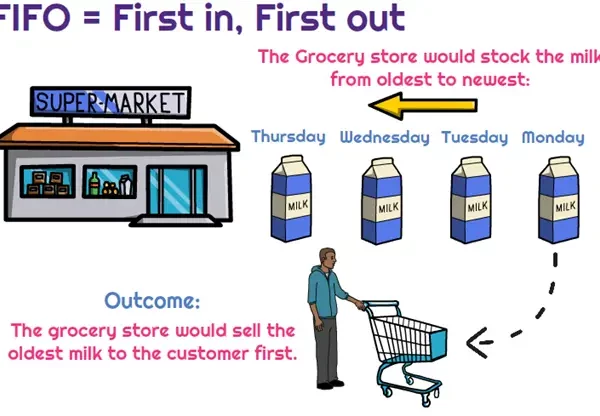What are automated inventory systems?
An automated inventory management system can add, update, delete, and transfer stock in real-time.
Inventory is something that changes daily in the business. This is true especially for wholesale businesses as inventory changes in bulk quantities. Automated inventory systems help companies manage and easily update the stock.
On the whole, automated inventory systems are essential in the business. They not only have an impact on the inventory management team, but your entire business as well. Automated inventory management systems are help all kinds of companies. Now, these systems are getting famous in the wholesales industry as well.
How can automated inventory systems help wholesalers?
On a daily basis, the inventory circulates in a wholesale business in large quantities. A wholesale merchant needs to know the power of an automated inventory system in the wholesale business. Wholesalers have many options by which they can optimize their inventory. It is up to them to use spreadsheets or a proper inventory management system for their business.
If the wholesaler is using spreadsheets, they need to manually deduct the inventory immediately after a sale. As the update of the stock is done manually, there are too many changes of human errors. That’s why using an automated inventory system has become a basic need of wholesale businesses. Automated inventory systems can manage most wholesale business operations through the following features:
-
Real-time Stock Visibility
An automated inventory system helps a wholesale business to manage inventory count accurately. It automates the whole process of a transaction. If any transaction is being done, this system will automatically update the product database and deduct the stock.
-
Eliminate Human Errors
As human interaction is shallow in such systems, the chances of human errors are low. It automatically manages the whole process of order and then gives up-to-date information on the stock.
-
Time Saver
An automated inventory system is a time saver. It saves your inventory management team from spreadsheet tasks. Plus, it automatically generates insights that are helpful in quick decision-making.
-
Re-order notifications
Wholesalers do not need to keep an eye on inventory levels. An automated stock system can generate notifications quickly if the stock needs to be refilled.
-
Self-Assistant
There is notable competition between wholesale markets. Automated inventory systems put you ahead of the competition by showing your customers’ interests. It can help you target the audience according to your product catalog.
The role of an automated inventory system in COVID-19
As we all know, COVID-19 has badly affected each domain of life. The same is the case with wholesale businesses. Usually, most wholesales businesses do not implement automated inventory management systems.
But COVID-19 has made wholesale businesses realize the importance of inventory management systems. In the USA, almost all wholesale companies are market-based. When the markets closed during lockdown, wholesale businesses were severely affected. All their goods were stuck in the warehouses.
Here, automated inventory systems played their roles. It allowed wholesale businesses to manage their business online. Though the manufacturing unit was closed, they could still sell their finished goods.
Manual vs. automated wholesale inventory management systems
|
Manual Inventory Management Systems |
Automated Inventory Management Systems |
| Appropriate for small businesses | Best for large business |
| All data related tasks handled manually | Automatically update the data |
| Not expensive | Economic with ideal business solutions |
| High risk | Secure |
| Resource Intensive | One-time investment. |
| Requires to keep an eye on restock point | Generates notifications for restock level |
| Can take a company in daunt due to human error | Eliminates human errors |
Consider an automated inventory system as an opportunity – not an expense
Automated inventory management systems present an opportunity for businesses to grow in the market. They give freedom to the inventory management team and manage complex tasks.
Many business owners think these systems are pretty expensive. These systems might require capital, but it is a one-time investment. They save you from labor costs and give unique functionalities. They can handle complex tasks quickly and easily.
Cloud-based inventory management systems are more secure as there are fewer chances of data loss. Wholesale business must implement automated inventory management systems if they want to succeed.



